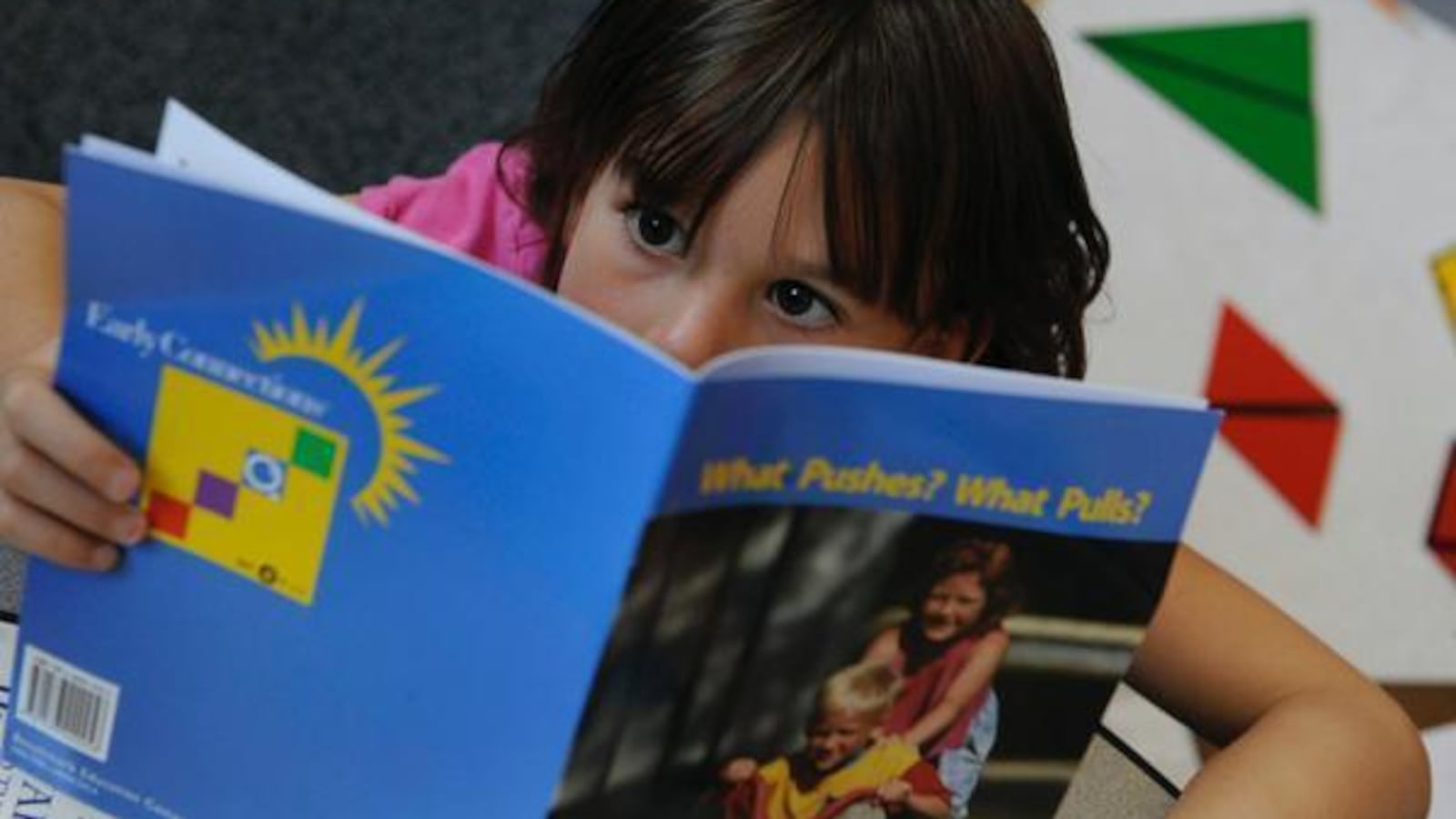Colorado passed a law last year intended to ensure that every teacher who works with early elementary children has training on the best ways to teach reading.
But as the State Board of Education considers what types of training qualify, some advocates fear the rules are too vague and don’t spell out how reading courses will be vetted.
The teacher training requirement, part of a package of rules to come out of a new law updating the state’s 2012 landmark reading law, reflects a growing push in Colorado and the nation to boost reading proficiency by better training and supporting teachers. The State Board will discuss the rules Wednesday and likely will take a final vote in March.
Under the proposed rule, the state has laid out several ways K-3 teachers can meet the new requirement, including passing a test, completing certain kinds of training, or earning a master’s degree in reading. Teachers may also earn credit for reading courses they passed in college — a sticking point for some advocates because state experts and national groups recently have questioned the quality of some of those classes.
Asked how state education department staff will determine which classes at which teacher prep programs satisfy the requirements, a department spokesman said in an email that they’ll decide once teachers submit documents about the class they took, such as the course syllabi, their transcript, and proof they passed the final exam.
Critics say that kind of case-by-case internal review leaves the public in the dark about what gets the state’s stamp of approval and what doesn’t.
“There’s just so many moving parts and gray areas in all of that,” said Karin Johnson, a Littleton parent and co-chair of the group COKID, which advocates for students with dyslexia.
Plus, she said, a change in staff could mean a shift in criteria.
“What happens two years down the road if we have a new commissioner or a new director of this department or that department, and they interpret [the rule] differently … or use a different rubric to assess these classes?” she said.
Melissa Colsman, associate commissioner of student learning for the education department, said she anticipates large districts will create their own training so their teachers can avoid digging through old college paperwork to meet the requirement.
Last year, the state began scrutinizing how Colorado’s teacher prep programs cover reading instruction as part of the state reauthorization process. But with reauthorizations usually scheduled every five years, it will take at least four more years to ensure all prep programs get the same in-depth reviews.
The first prep program subject to extra scrutiny on reading instruction was the state’s largest — University of Northern Colorado — and it didn’t fare well. The state delivered a harsh critique in early 2019, saying the program’s reading courses didn’t match up with research and that some professors had philosophies that contradict state standards. State officials gave the university a year to correct the problems and visited the campus last week to help determine if the program met the required conditions. The state likely will issue a final determination this spring.
Metro State University, the state’s second-largest teacher prep program, is undergoing reauthorization now.
Many teachers say they didn’t learn much about how to teach reading in their teacher prep programs. That’s borne out by the results of a test given to teachers who participated in a state literacy project in 2016-17. A large share of test-takers had weak foundational skills in literacy, the state education department found.
About half of Colorado’s teachers came from in-state prep programs and half from out-of-state ones.
Caitlin Mohl, a first-grade teacher and literacy coach in the Denver district, said her undergraduate teacher prep program in South Carolina didn’t do a good job covering reading instruction, but she learned much more when she attended a special weeklong literacy training when she was a teacher in California. Since then, she also got a master’s degree, and read widely about reading instruction on her own time.
She thinks the new rule requiring teacher training will be a good start, but is not enough.
“In general, it would be great for teachers to have that information,” she said. “but I think it will take more than that … to change practices.”
She said teachers need ongoing coaching and other support to put their training into action.
Jason Glass, superintendent of the Jeffco district, agreed with the thrust of the new rules, saying, “That’s a good policy move. I think that you have to allow for flexible ways that teachers can get to that new standard.”
Initially, he submitted comments to the state asking for a grace period after the state set a deadline for compliance by the beginning of the 2021-22 school year. State officials later clarified that they will allow districts an extension in certain instances.
Michelle Murphy, executive director of the Colorado Rural Schools Alliance, said her group doesn’t dispute the need for reading training, but worried about the provision in the rules that requires 45 hours of training.
State officials have said they’ll add language to create more flexibility on the length of the training.

